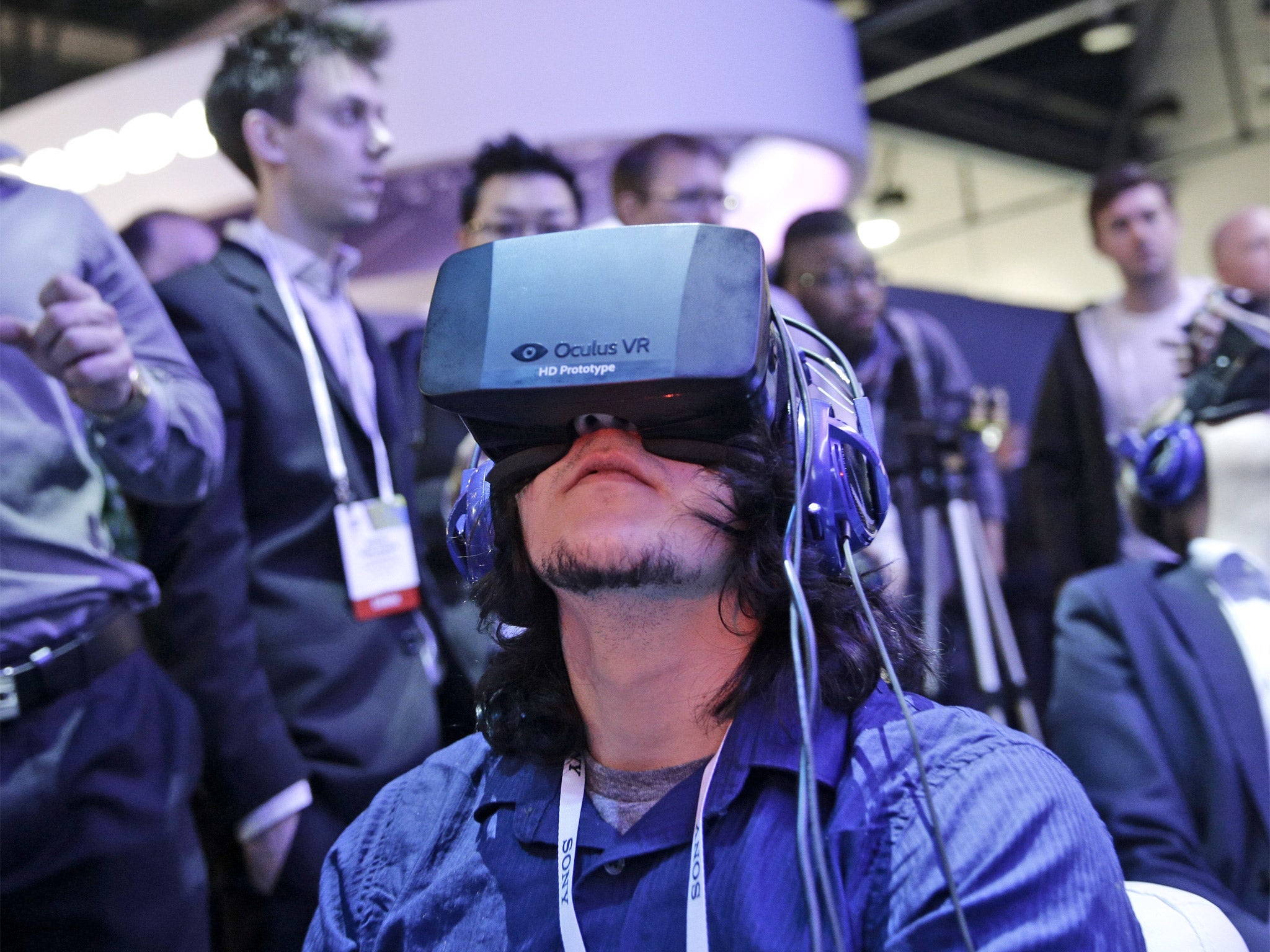Nasa looks to virtual reality 'holodecks' – powered by Oculus Rift to keep astronauts sane in space
Virtual reality environments to de-stress astronauts on long journeys have been under development since 2001

Your support helps us to tell the story
From reproductive rights to climate change to Big Tech, The Independent is on the ground when the story is developing. Whether it's investigating the financials of Elon Musk's pro-Trump PAC or producing our latest documentary, 'The A Word', which shines a light on the American women fighting for reproductive rights, we know how important it is to parse out the facts from the messaging.
At such a critical moment in US history, we need reporters on the ground. Your donation allows us to keep sending journalists to speak to both sides of the story.
The Independent is trusted by Americans across the entire political spectrum. And unlike many other quality news outlets, we choose not to lock Americans out of our reporting and analysis with paywalls. We believe quality journalism should be available to everyone, paid for by those who can afford it.
Your support makes all the difference.Without some miraculous breakthrough in propulsion technology the future of space travel is going to be a lot like a family holiday driving to France. People are going to have to endure long journeys in cramped conditions with people they slowly come to despise.
Well, okay, so astronauts aren’t likely to start asking ‘are we there yet?’ or get sick on the ferry, but the problem of keeping an even psychological keel during space flights (it’s seven months to Mars for example) is very real.
One solution is to put astronauts in stasis, but the technology simply isn’t advanced enough yet. Somewhat incredibly, scientists are instead looking to virtual reality as a more plausible solution, with the Facebook-owned Oculus Rift VR goggles at the centre of current research.
Scientists from Dartmouth College’s Digital Arts Leadership and Innovation lab (DALI) have been working on their software since 2001 and were recently granted a $1.6 million grant from Nasa to fund their work: creating virtual environments and digital therapists to de-stress astronauts in deep space and help manage inter-personal conflicts.
In a press release, Dartmouth research professor Lorie Loeb said the team was working on multi-sensory experiences, including smells and sounds to “trick the brain and make people feel as if they are in a variety of beautiful and calm settings, such as with their family at home or strolling on the beach.”
As well as these virtual environments (that sound pretty similar to the holo decks of Star Trek’s USS Enterprise) the team from Dartmouth is also working to create digital therapists that will “assess and manage psychosocial problems to prevent them from becoming serious enough to jeopardize a mission.”
The programs will be given some of their first real tests during the HI-SEAS (Hawaii Space Exploration Analog and Simulation) mission, an eight-month recreation of a manned space mission to Mars set in a 36-foot diameter geodesic dome.
Join our commenting forum
Join thought-provoking conversations, follow other Independent readers and see their replies
Comments